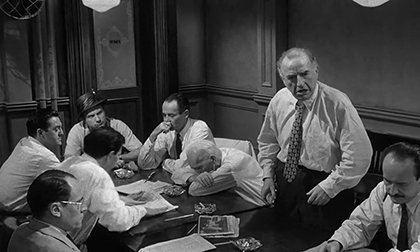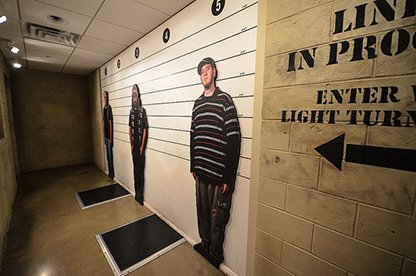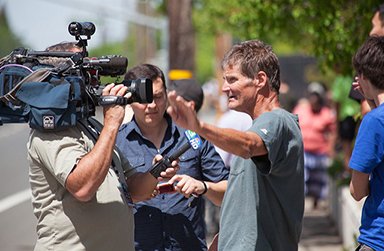Are we always honest as an eyewitness in our recollection of events? It's known that eyewitness accounts are unreliable in general. People can falsely recall or remember things, get things mixed up, or even outright lie.

12 Angry Men
The movie 12 Angry Men is great, and shows that some of the eyewitness accounts used to try to convict a boy of a crime, were inaccurate and false. The actual events were misrepresented by several testimonies due to various reasons. One older woman couldn't have seen what she said she saw, but she made it up to get attention. Another witness couldn't have heard what they heard. And that's just for witnessing something alone.
What happens when we witness something with others around us, and we all talk about what we saw afterwards? How accurate are our accounts then?
We all are influenced by those around us, parents, fiends, the media, etc. But those who are closest to us and that we identify with the most have more of an influence on us. When some people tell us things, we pay more attention and give more value, weight or importance to what they say. We can also put more weight into how true or accurate what they are telling us is. We believe in what they say because they have our trust, loyalty and faith in them.
Even if we don't know the people, we are still influenced by what others do. We tend to conform to the group, to be an inclusive part of the collective and follow with the group-think to fit in. Looking at the Asch conformity experiments, we can see how easily people are influenced into collective group-think conformity. Some new research has looked into how problematic this is in terms of using eyewitness accounts for criminal cases. There can be miscarriages of justice to falsely convict or acquit people.
To test how reliable eyewitness accounts are when shared among groups of people, Dara Mojtahedi showed a violent incident to volunteers acting as witnesses. When people were allowed to talk about the video and what they saw, many other people's own recollection of events was distorted by what others were saying. Like in the Asch conformity tests, there were dummy witnesses planted to suggest wrong accounts of what happened.
The experiment had 420 people that also included some preexisting relations to other people for at least 3 months. Those who had discussions with others had more statement similarity when they later gave individual statements of recollection. Even if many people see the same thing, they talk about it differently. But after sharing accounts, they tend to say more of the same things, like a rehearsed statement.
We are very susceptible to the influence of others. I have posted about this before, but everything that happens, visual or auditory, will influence us. Everything we take in throughout our lives has an affect upon us. When it comes to those closer to us, we are even more influenced by what they have to say. Those we have trust, faith, loyalty and belief in will have us think they are more likely to be correct than a stranger we don't have that faith in. We spend less time questioning the accuracy of those we trust, and are more easily swayed by what they have to say.
This research can help refine police and court procedures with respect to eyewitness accounts. Taking into consideration the degree of co-witness familiarity (i.e. having a prior relationship) will factor into how reliable someone's own account is. It's not just what someone says that needs to be asked, but also did you witness something alone; with friends or family; or with complete strangers; and did you talk about it with each other afterwards?


